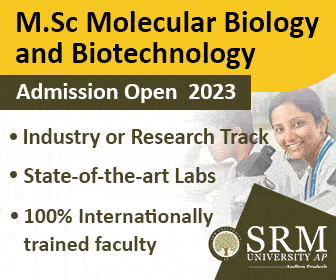Interdisciplinary Research Ideas in Biotech & Life Science
Welcome to a world of endless possibilities in biotechnology and life sciences for your MSc or PhD journey. Biotechnology and life sciences have witnessed remarkable advancements over the years, leading to groundbreaking discoveries and innovations. However, as these fields continue to expand, so do the complexities of the questions they seek to answer. To tackle these complex challenges effectively, researchers increasingly turn to interdisciplinary approaches, where the boundaries between biology, chemistry, physics, engineering, and even computer science blur. In this article, we will explore the exciting world of interdisciplinary research in biotech and life sciences, offering some intriguing ideas for future research.
We’ve compiled over 70 interdisciplinary research ideas to fuel your exploration, covering genetics, bioinformatics, regenerative medicine, ecology, and more. These ideas offer a glimpse into the future of healthcare, agriculture, and environmental sustainability. Get ready to embark on a thrilling academic adventure that merges biotech and life sciences, inspiring innovation and understanding of the natural world. Your research can shape the future. The opportunities are boundless, awaiting your brilliance.
Table of Contents
1. Nanotechnology and Drug Delivery Systems
Nanotechnology is a field that intersects with biotechnology to revolutionize drug delivery systems. One of the most significant applications of nanotechnology in drug delivery is in cancer therapy.
Nanoparticles can be loaded with chemotherapy drugs and designed to target cancer cells specifically. For instance, Doxil is a liposomal formulation of doxorubicin used to treat various types of cancer. The nanoscale liposomes protect healthy tissues while delivering the drug directly to cancer cells.
Nanoparticle-based vaccine carriers have gained attention, particularly during the COVID-19 pandemic. Some COVID-19 vaccines, like the Pfizer-BioNTech and Moderna vaccines, use lipid nanoparticles to deliver messenger RNA (mRNA) to stimulate an immune response.
| Interdisciplinary Research Ideas in Biotech and Lifescience |
| Multifunctional Nanocarriers for Enhanced Drug Delivery |
| Biodegradable Nanoparticles for Sustained Drug Release |
| Personalized Medicine through Nanoparticle Drug Carriers |
| Bioresponsive Nanomaterials for Drug Release Control |
| Nanotechnology-Enabled Oral Drug Delivery Systems |
| Nanosensors for Real-time Drug Monitoring in vivo |
| Biomimetic Nanocarriers for Drug Delivery |
| Nanotechnology for Enhanced Antibiotic Delivery |
| 3D Printing of Nanocarriers for Drug Delivery |
| Environmental Impact Assessment of Nanoparticle-Based Drug Delivery |
2. Neurobiology and Artificial Intelligence
Understanding the human brain is a quest that transcends traditional disciplinary boundaries. Interdisciplinary research that combines neurobiology and artificial intelligence (AI) offers tremendous potential. By developing brain-inspired algorithms, AI can help analyze complex neural data, aiding in diagnosing and treating neurological disorders.
There are several exciting advancements in this field. They are Neuromorphic Computing, where the software is designed to mimic the structure and function of the human brain, Brain-Computer Interfaces (BCIs), designing neural networks using AI, Cognitive computing, Brain Mapping, and Connectomics.
The following topics can be considered for interdisciplinary research:
| Interdisciplinary Research Ideas in Biotech and Lifescience |
| Neural Network Models of Brain Function: Bridging the Gap between Neuroscience & AI |
| Brain-Computer Interfaces for Cognitive Enhancement and Communication |
| Deep Learning Approaches to Analyzing Brain Imaging Data |
| Neurobiologically-Inspired Learning Algorithms for AI Systems |
| Understanding Neural Plasticity for Improving Machine Learning Algorithms |
| AI-Driven Diagnosis and Treatment in Neurological Disorders |
| Enhancing Robotics and Prosthetics with Neurobiologically-Inspired Control |
| Neural Networks as Models for Memory and Learning in AI |
| The Role of Attention Mechanisms in AI and Cognitive Neuroscience |
| Ethical and Privacy Concerns in Integrating AI with Neurobiology Research |
3. Synthetic Biology and Environmental Sustainability
Synthetic biology involves designing and constructing biological parts and systems, often for the purpose of creating novel organisms or modifying existing ones. Researchers in this field are working on bioengineered solutions to address environmental challenges.
The latest advancements are biological pest control, Waste Water treatment, Environmental monitoring, Biofabrication, biological sensors, precision medicine, Carbon capture, biofuel, bioremediation, and biodegradable plastics. This research draws upon biology, chemistry, and environmental science.
The topics for research that can be considered are as follows:
| Interdisciplinary Research Ideas in Biotech and Lifescience |
| Bioengineered Microorganisms for Carbon Sequestration: Enhancing CO2 Capture and Conversion |
| Designer Algae for Biofuel Production: Advancing Sustainable Energy Sources |
| Bioremediation Strategies Using Synthetic Biology to Cleanse Polluted Ecosystems |
| Synthetic Microbial Consortia for Enhanced Nutrient Cycling and Soil Health |
| Optimizing Plant-Microbe Interactions for Improved Crop Resilience and Yield |
| Genome Editing in Trees for Accelerated Reforestation and Carbon Offset |
| Bioengineered Microbes for Efficient Wastewater Treatment and Resource Recovery |
| Synthetic Biology Approaches to Enhance Biodiversity and Ecosystem Restoration |
| Biologically-Inspired Materials and Structures for Sustainable Infrastructure |
| Genetically Engineered Organisms for the Sustainable Production of Biodegradable Plastics and Materials |
4. Genomics and Personalized Medicine
The integration of genomics, medicine, and data science is propelling the field of personalized medicine. By sequencing an individual’s genome, clinicians can tailor medical treatments to their specific genetic makeup, improving the efficacy and safety of interventions. This area of interdisciplinary research combines biology, genetics, medicine, and computational data analysis.
The latest advancements in genomics and personalized medicine include the use of pharmacogenomics for tailored drug treatments, personalized cancer therapy based on tumor genomics, advanced diagnostic tools for rare diseases, and the integration of various genomic and clinical data. Liquid biopsies, phenotype-genotype correlation, gene editing technologies, and ethical considerations are also shaping the field’s progress.
| Interdisciplinary Research Ideas in Biotech and Lifescience |
| Pharmacogenomics and Drug Response: Identifying Genetic Variations for Personalized Medication Prescriptions |
| Genomic Biomarkers for Early Disease Detection and Risk Assessment in Personalized Medicine |
| Personalized Cancer Immunotherapy: Leveraging Genomic Data for Targeted Treatment Strategies |
| Genomic Profiling of Rare Diseases for Precision Diagnosis and Therapeutic Interventions |
| Ethical and Legal Implications of Genomic Data in Personalized Medicine: A Comprehensive Study |
| Integration of Multi-Omics Data for Holistic Personalized Medicine Approaches |
| Genomic-Based Dietary Recommendations for Personalized Nutrition and Health |
| Genomic Data Sharing and Privacy in the Era of Personalized Medicine |
| Phylogenomics and Infectious Disease Control: Tailoring Treatments for Individual Patients |
| Economic Evaluations of Genomic Medicine: Assessing Cost-Effectiveness in Healthcare |
5. Bioinformatics and Epidemic Modeling – Interdisciplinary Research Ideas in Biotech & Life Science
The COVID-19 pandemic showcased the significance of bioinformatics in epidemic management. By integrating data from genomics, epidemiology, and health systems, interdisciplinary research can develop accurate models for predicting the spread of infectious diseases, aiding in the development of effective strategies for containment and treatment.
| Interdisciplinary Research Ideas in Biotech and Lifescience |
|
Integrating Genomic Data into Epidemic Models: Uncovering Genetic Factors Affecting Disease Spread and Severity
|
| Real-Time Data Analysis for Early Epidemic Detection and Forecasting Using Bioinformatics Tools |
| Machine Learning Approaches for Predicting Disease Outbreaks and Assessing Intervention Strategies |
| Phylogenomic Analysis of Pathogens: Understanding Transmission Dynamics and Evolution during Epidemics |
| Genomic Epidemiology: Tracking the Spread of Infectious Diseases through Genetic Sequencing Data |
| Network Analysis of Disease Transmission: Combining Epidemiological and Genomic Data |
| Viral Mutation Modeling: Anticipating Variants and Their Impact on Epidemic Control |
| Structural Bioinformatics in Vaccine Design: Accelerating the Development of Vaccines for Emerging Diseases |
| Using Metagenomics to Study Microbial Communities in Epidemic Scenarios and Identify Potential Reservoirs |
| Data Integration and Visualization for Improved Communication and Decision-Making in Epidemic Response |
6. Ecological Genomics and Conservation Biology
– Interdisciplinary Research Ideas in Biotech & Life Science
Understanding the genetic diversity within species is essential for conservation efforts. Ecological genomics combines the study of genetics with ecology to inform conservation biology.
Recent advances in ecological genomics and conservation biology include the use of genomics to track and protect endangered species, uncovering genetic diversity within ecosystems, understanding the impact of climate change on species, and utilizing advanced sequencing technologies for environmental monitoring and biodiversity preservation.
| Interdisciplinary Research Ideas in Biotech and Lifescience |
| Genomic Insights into Species Adaptation to Environmental Change: Implications for Conservation Strategies |
| The Genomic Basis of Invasive Species: Unraveling Mechanisms of Biological Invasions for Better Conservation Management |
| Metagenomics in Conservation: Assessing Biodiversity and Ecosystem Health through Environmental DNA (eDNA) Analysis |
| Phylogenomic Approaches to Reconstructing Evolutionary Histories and Informing Conservation Priorities |
| Genomics of Endangered Species: Leveraging Genetic Data for Effective Population Management and Recovery |
| Conservation Genomics and Disease Resistance: Strategies to Protect Wildlife from Emerging Pathogens |
| Genomic Tools for Monitoring and Managing Genetic Diversity in Small Populations |
| Environmental Epigenomics: Understanding Epigenetic Mechanisms in Ecological Responses and Conservation |
| Genomic Insights into Wildlife Behavior: Linking Genes, Behavior, and Conservation |
| Ecological Genomics for Ecosystem Restoration: Applying Genomic Data to Restore Biodiversity and Ecosystem Function |
7. Pharmacogenomics and Artificial Intelligence – Interdisciplinary Research Ideas in Biotech
Pharmacogenomics investigates how an individual’s genetic makeup affects their response to drugs. Artificial intelligence plays a vital role in sifting through vast genomic data to identify the most effective medications for specific patients. This interdisciplinary approach can lead to more precise and personalized drug prescriptions, minimizing adverse effects and optimizing treatment outcomes.
AI-powered algorithms have been increasingly used to predict an individual’s drug response based on their genetic data, enabling more precise medication selection and dosing. Machine learning models are being employed to analyze vast genomic datasets, identifying genetic markers associated with drug efficacy and adverse effects.
These AI-driven approaches hold promise for tailoring treatments in personalized medicine, improving patient outcomes, and reducing the risk of adverse drug reactions. Advanced data integration and predictive analytics are at the forefront of this field.
| Interdisciplinary Research Ideas in Biotech and Lifescience |
| Personalized Drug Dosing Algorithms: Utilizing AI to Optimize Medication Regimens Based on Genetic Profiles |
| AI-Enhanced Drug Discovery: Identifying Potential Target Genes for Pharmacogenomic Research |
| Machine Learning for Predicting Adverse Drug Reactions Based on Genomic Data |
| AI-Driven Drug-Drug Interaction Prediction in Pharmacogenomics |
| Genomic Data Integration in AI Models for Predicting Drug Efficacy in Individual Patients |
| Deep Learning Approaches for Identifying Genomic Biomarkers in Pharmacogenomics |
| AI-Enabled Clinical Decision Support for Physicians in Drug Prescriptions and Dosing |
| AI-Driven Drug Repurposing Using Genomic and Clinical Data for Personalized Medicine |
| Data Privacy and Security in AI-Pharmacogenomics: Ensuring Ethical and Secure Data Handling |
| Translating AI-Pharmacogenomics Research into Clinical Practice: Implementation and Evaluation Strategies |
Interdisciplinary research in biotech and life sciences is advancing our understanding of the natural world and offering practical solutions to some of humanity’s most pressing challenges. As boundaries between scientific disciplines continue to blur, opportunities for innovation and discovery are expanding. Collaboration between biologists, chemists, physicists, engineers, and computer scientists is essential for driving progress in these fields. By embracing interdisciplinary research, we can look forward to a future filled with exciting breakthroughs and transformative discoveries.










































Very Good approach for deep learning.